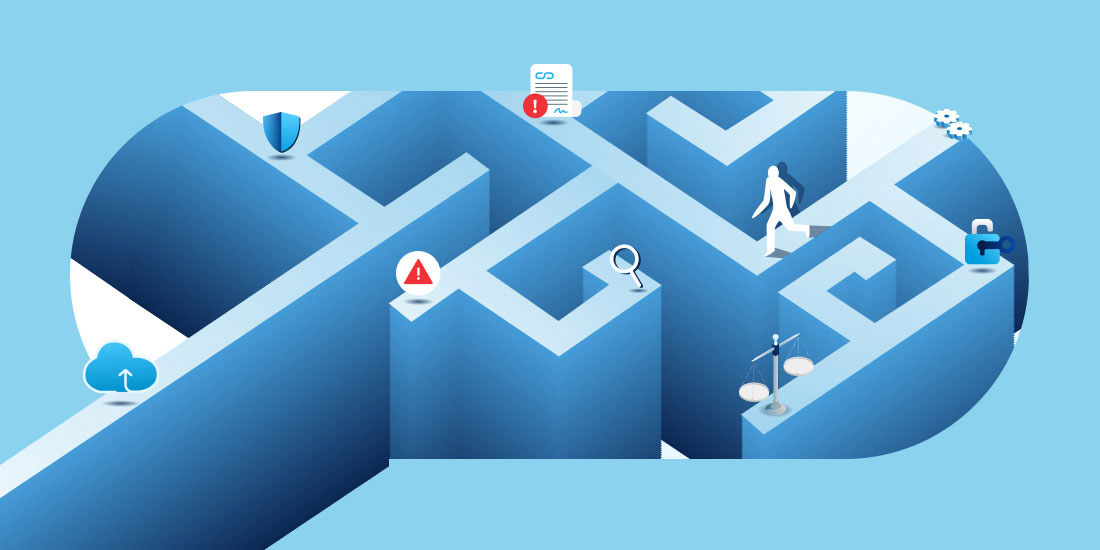Estimated Reading Time: 4 Minutes
As businesses navigate the complexities of data management, Managed Service Providers (MSPs) play a crucial role in delivering solutions that meet stringent compliance requirements and ensure uninterrupted operations. Among these solutions, email archiving stands out as an indispensable tool for modern organizations, enabling businesses to safeguard critical communications, simplify legal processes, and meet regulatory demands.
In this guide, we’ll explore how Dropsuite’s Archiving SKU empowers MSPs and their clients with advanced features like Legal Hold, Journaling, eDiscovery, and compliance management, addressing the evolving needs of today’s data-driven world.
What is Email Archiving?
What does it mean to archive an email? Email archiving is the systematic preservation of all email communications for long-term storage, indexed for effortless search and retrieval. Unlike email backups, which are primarily designed for disaster recovery and business continuity, email archiving focuses on compliance, legal discovery, and data governance.
Dropsuite’s email archiving solution utilizes journaling, capturing every sent and received email in real-time to create a comprehensive record. It goes beyond storage, offering tools to manage legal holds, conduct complex searches, and ensure data integrity for audits and investigations.

Why Archive Emails?
From Dropsuite Customer Rene Miller, CEO of Ener Systems:
“When an MSP maintains an immutable archive, it means a lot less risk for the customer. Customers sometimes call with legal issues. Their attorney might request a legal hold on client correspondence to preserve evidence, or their legal team might need to conduct eDiscovery searches across a certain time period. They specify searches on fields like date, sender, recipient, subject line, body contents, and more. Dropsuite is ideal in those situations because the archive is immutable, and customers can easily search through it, export the results to Outlook PST files and hand them off.”
1. Simplify eDiscovery Processes
When legal proceedings or compliance audits arise, businesses must quickly locate and produce specific communications.
Dropsuite’s advanced eDiscovery capabilities streamline this process, allowing MSPs to search vast email archives with precision. Features like tagging, filtering, and automated alerts make it easier to pinpoint relevant emails, reducing the time and cost of compliance.
With Dropsuite, organizations can search across fields such as sender, recipient, subject line, and email content, ensuring rapid retrieval during audits or investigations.
2. Manage Legal Obligations with Legal Hold
3. Ensure Compliance Across Global Standards
4. Support Data Protection Officers (DPOs)
With regulatory landscapes growing more complex, many organizations employ Data Protection Officers to oversee compliance. Dropsuite’s archiving solution supports DPOs by offering tools for automated policy violation alerts, seamless management of data standards, and intuitive dashboards for review. These capabilities empower DPOs to enforce compliance and secure sensitive information effectively.
5. Enhance Knowledge Management and Operational Efficiency
In an era of high employee turnover, preserving institutional memory is more critical than ever. Dropsuite’s archive ensures that critical communications and intellectual property are never lost, providing a valuable knowledge repository for businesses. Additionally, features like tagging and centralized search enhance operational efficiency, enabling teams to retrieve vital data effortlessly.
6. Prevent Data Loss and Streamline Management
Dropsuite’s solution also addresses data storage challenges. By offloading emails from local systems to an archive, organizations prevent storage bloat and improve application performance, such as Outlook efficiency. Automatic archiving rules allow for seamless retention of critical communications without overburdening production systems. MSPs should learn how to archive emails from Outlook and Gmail to enhance operational workflows.
7. Backup Microsoft 365 and Google Workspace Data and Prevent Risks
MSPs need solutions that safeguard email communications from unforeseen risks. Dropsuite ensures data protection for Microsoft 365, allowing seamless retrieval and compliance for critical client communications. It also offers unparalleled tools for Google Workspace data protection, addressing unique storage and security challenges. MSPs can learn how to find archived emails in Gmail and Outlook with Dropsuite, allowing them to effortlessly retrieve important communications that were stored securely.
Benefits of Email Archiving for MSPs
The client benefits of email archiving are clear. What about the benefits to an MSP’s business? Here are a few:
1. Strengthen Client Relationships Through Compliance Expertise
MSPs are trusted advisors for their clients, helping them navigate complex compliance requirements. Dropsuite’s archiving solution positions MSPs as leaders in regulatory compliance, enabling them to deliver tailored solutions that meet stringent standards.
2. Increase Operational Efficiency
Managing internal investigations or legal discovery is often time-consuming and resource intensive. With Dropsuite’s advanced compliance features, MSPs can streamline these processes, reducing labor costs and delivering quicker results for clients. MSPs benefit from automated journaling and real-time capture, ensuring no communication is lost, even if emails are deleted by users.
3. Unlock New Revenue Streams
By offering Dropsuite’s archiving solution as part of a premium service package, MSPs can enhance their portfolio with advanced features like unlimited storage, granular recovery options, and robust compliance tools. These capabilities provide clients with significant value while enabling MSPs to differentiate their services and explore new growth opportunities.
4. Reduce Cybersecurity Risks
Dropsuite’s immutable storage protects organizations from malicious actions such as business email compromise (BEC) or data tampering. Archived emails can be searched and restored even in cases where hackers attempt to delete incriminating messages, ensuring full data transparency.
Dropsuite Archiving Features at a Glance
- Legal Hold: Lock critical data to meet audit and investigation requirements.
- Journaling: Capture every sent and received email in real-time, ensuring a complete and secure record.
- eDiscovery: Conduct precise searches with tagging, filtering, and audit-ready retrieval.
- Immutable Storage: Ensure data integrity with secure archiving.
- Compliance Management: Meet global regulatory standards with customizable retention policies and automated alerts.
- DPO Support: Equip Data Protection Officers with robust tools to oversee compliance and secure sensitive data.
A Trusted Solution for MSPs
Dropsuite’s archiving solution is designed to simplify data management, enhance compliance, and empower MSPs to deliver unparalleled value to their clients. Whether it’s supporting legal discovery, safeguarding critical communications, or meeting global compliance requirements, Dropsuite offers the tools businesses need to thrive in today’s regulatory environment.
To learn more about how Dropsuite’s archiving solution can transform your data management strategy, contact us today. Additionally, we offer MSPs access to a free trial of NFR (Not for Resale) licenses to test Dropsuite within your own organization.






